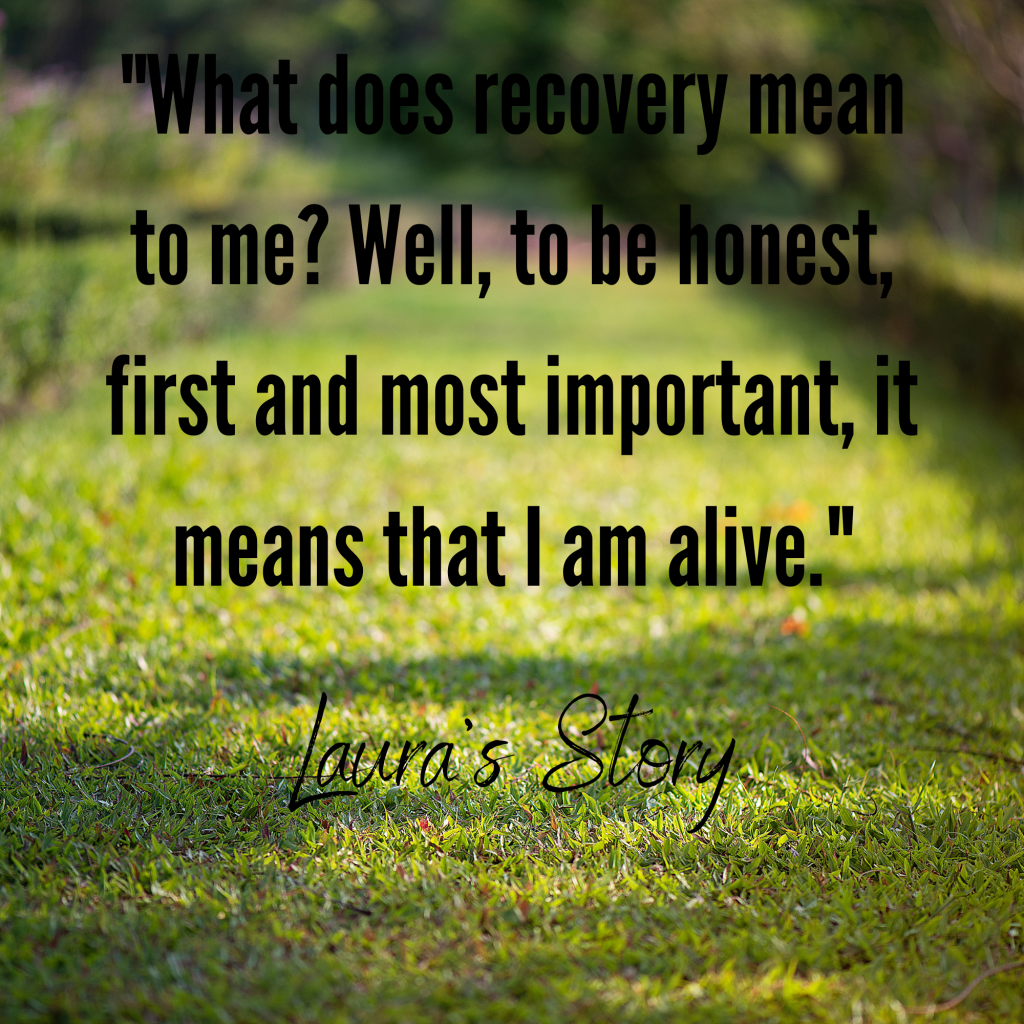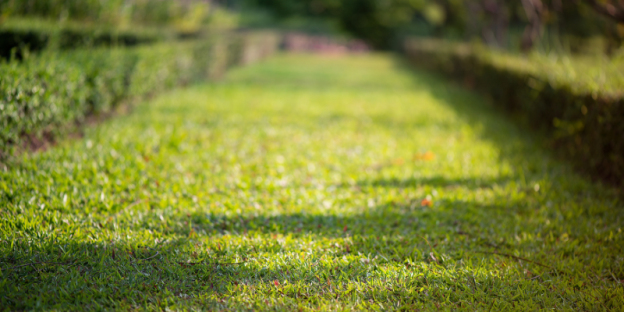
By: Laura
Source: Remembrance and Recovery Project by Mental Health America (Mental Health Minnesota)
What does recovery mean to me? Well, to be honest, first and most important, it means that I am alive today. I’ll just go ahead and put that out there right away. I wanted to commit suicide. Kill myself. Take my life. Determine my fate. Play God. Now, I almost cry thinking about it. Then…well, then was a different story. I was beyond tears. Beyond pain. Far beyond caring what would happen if I overdosed. I was having those stereotypical suicidal ideations: “Anything would be better than this.” “I just want this insanity to stop.” “I just want a break from it all for a little while…”
I did end up getting a break. I was lucky. I landed in a partial hospital treatment program at Fairview University Medical Center in Minneapolis, Minnesota. I spent the two weeks between Christmas and New Year’s Eve 2004 sitting in a circle in dimly lit rooms with dry erase boards and muted colors trying to get the words that were buzzing around in my head to come out of my mouth and make some sense to a bunch of strangers. They smiled politely and nodded and asked the right questions. Maybe some of them even understood my hell. Some of them had gone through some things similar to what I had. This experience was particularly painful and awkward because for my career I spend my day treating people with mental illness. My job is to run treatment groups and help people cope with the triggers and stressors of having a mental illness. It took me several days to even take the groups seriously at the partial hospital program; I was aloof and cocky and thought that because I taught the same material that I had all the answers.
Actually, I had very few answers. I needed a lot of help in nearly every area of my life. The partial hospital was the beginning of my healing. It was hard because I missed work for those two weeks and I had to face a lot of things about myself that were hard to understand. Confusion, pain, depression, anger, resentment, apathy, and fear filled my days.
Although my inside emotions were hurtful and a big mess, other people saw me as a healthy, confident, friendly young woman. Most people don’t know I have a secret. I have depression. In a major way. I’ve had it for years. I am twenty-four years old and the first time I remember feeling depressed was when I was about eleven years old. We had some extended family over for a barbecue and some people were in the backyard playing basketball.
I was just getting into playing basketball at that time, but I distinctly remember telling my mom that I did not want to go outside and play. I had no interest in it. Now I know that “lack of interest in activities that are usually enjoyable” is a symptom of depression. So is change in sleep patterns, change in weight, isolating, low motivation, difficulty completing tasks and thinking clearly, irritability, thoughts of suicide, and feelings of helplessness and hopelessness. Each of these symptoms plagued me.
The next thirteen years had many fantastic moments. There were also some horrible and painful times. Every fall, and sometimes during other seasons, especially during a life change like graduating or changing jobs, I got depressed. Medication, psychiatrists, counselors, crying, swearing, anger, fear, regret, guilt, family support, confusion, helplessness are some words that come to mind.
Living with depression takes work everyday. I have developed ways to cope with it and enjoy life. After completion of the partial hospital program, I participated in an eight-week group therapy based on mindfulness meditation practice. Individual therapy continued as well as did appointments with my psychiatrist. I tried a variety of antidepressants and mood stabilizers and after undesirable side effects, and some with no beneficial effect, I am living medication-free. I will be using a special light this fall that helps combat seasonal affective disorder. Attending a weekly DBT (Dialectical Behavioral Therapy) has also been effective in learning skills to manage my depression. Prayer, having a solid support system of family and friends, exercise, and healthy eating are other ways I maintain my health.
This is my story of recovery. I believe I am blessed to have depression. It is not an easy disease to deal with, but it has made me a strong and compassionate person. To those people who read this story who have depression, know that help is available and each of you have the ability to make it through your struggles and live a meaningful life.
